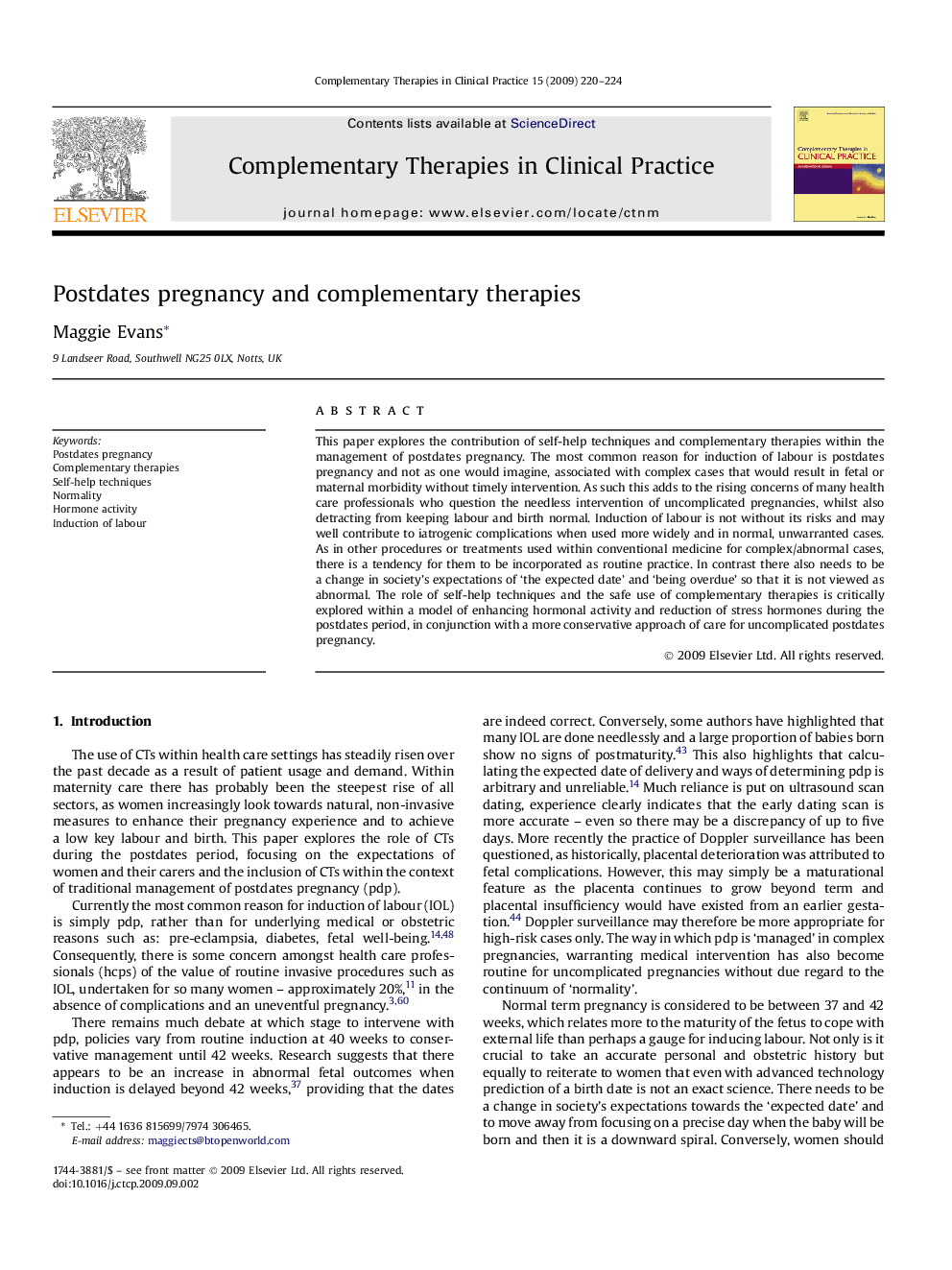| Article ID | Journal | Published Year | Pages | File Type |
|---|---|---|---|---|
| 2628596 | Complementary Therapies in Clinical Practice | 2009 | 5 Pages |
This paper explores the contribution of self-help techniques and complementary therapies within the management of postdates pregnancy. The most common reason for induction of labour is postdates pregnancy and not as one would imagine, associated with complex cases that would result in fetal or maternal morbidity without timely intervention. As such this adds to the rising concerns of many health care professionals who question the needless intervention of uncomplicated pregnancies, whilst also detracting from keeping labour and birth normal. Induction of labour is not without its risks and may well contribute to iatrogenic complications when used more widely and in normal, unwarranted cases. As in other procedures or treatments used within conventional medicine for complex/abnormal cases, there is a tendency for them to be incorporated as routine practice. In contrast there also needs to be a change in society's expectations of ‘the expected date’ and ‘being overdue’ so that it is not viewed as abnormal. The role of self-help techniques and the safe use of complementary therapies is critically explored within a model of enhancing hormonal activity and reduction of stress hormones during the postdates period, in conjunction with a more conservative approach of care for uncomplicated postdates pregnancy.
